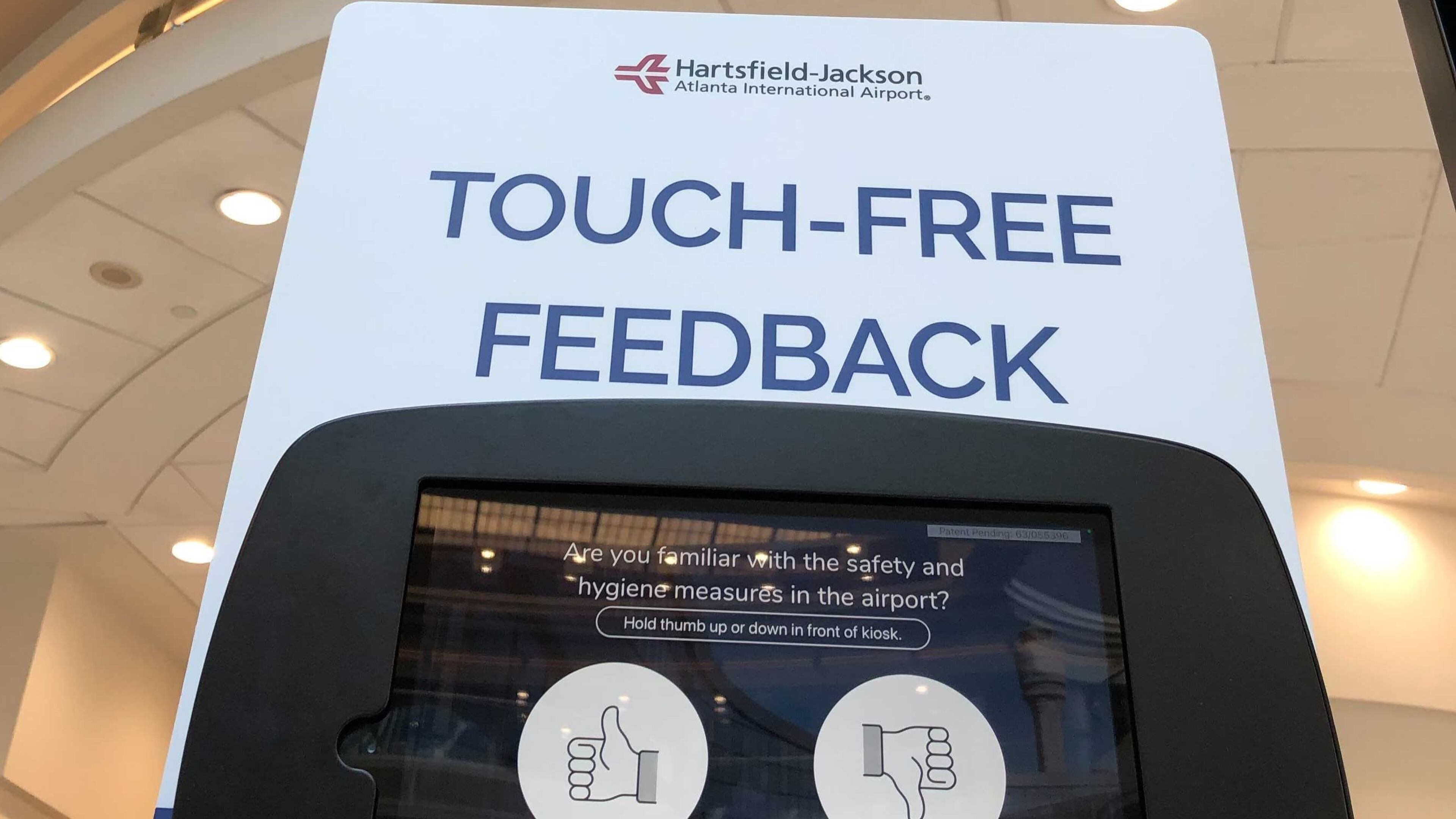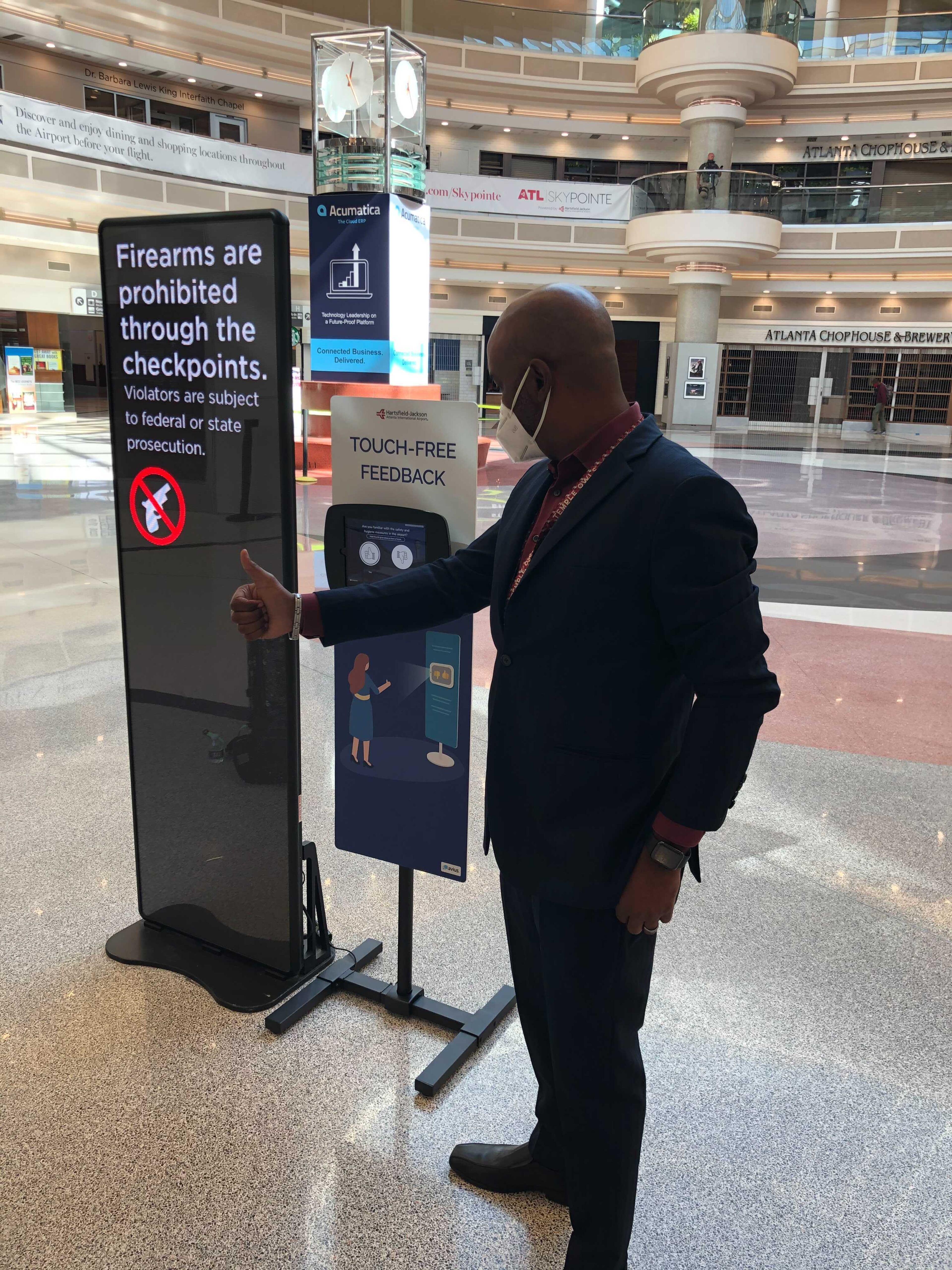Hartsfield-Jackson tests new touchless survey devices

As the coronavirus pandemic rages on, Hartsfield-Jackson International Airport is testing new devices that allow travelers to give feedback on the cleanliness of the facility without having to use a touchscreen.
The technology is a potential upgrade to the more than 100 Avius touchscreen survey devices located throughout the Atlanta airport. Many of them are in restrooms to get feedback on when cleaning is needed.
The new devices read thumbs up and thumbs down hand gestures.
“Back four years ago, we decided to concentrate heavily on cleanliness of the airport, and here we are with COVID-19,” said airport customer experience director Steve Mayers.
“We know there’s a correlation between cleanliness and revenue,” Mayers said, since people are more likely to want to shop and eat in a clean environment.
That mission to boost revenue from concessions and other services has become even more critical for the airport now, with air travel down more than 60%. Because of the sharp drop in passenger counts amid the COVID-19 pandemic, revenue is expected to decline by hundreds of millions of dollars at Hartsfield-Jackson, long known as the world’s busiest airport.
Avius is debuting the touch-free “Gestures” devices at Legoland Florida and at the Atlanta airport. The company says such contact-free systems will play a more important role in society due to the coronavirus pandemic.

The airport has spent about $300,000 a year on its Avius survey devices in restrooms, at security checkpoints and other locations, and plans to expand them to concessions to get feedback on service as part of a larger contract.
The Atlanta City Council this week approved a sole source agreement with Avius America LLC for Hartsfield-Jackson, a deal worth up to $2.9 million over three years and two one-year renewal options. City documents say the proprietary system is the only such system that can deliver the information used daily at the airport, and that the cost to install new devices “far exceeds the costs of continuing with Avius.”
Mayers is testing the airport’s two touch-free survey devices first in the domestic terminal atrium and plans to move them to different concourses each week.
“We want to make sure, when we roll it out, that it’s working 100% to get the data correctly,” Mayers said.
The restroom touchscreen surveys currently garner about 2,000-3,000 responses a day, according to Mayers. When the responses indicate restrooms need cleaning, they trigger text message and email alerts to cleaning contractors and to Mayers.
The airport also has 25 “smart restrooms” with indicator lights above each stall to show which ones are occupied. That system also indicates when all stalls at a location are occupied, and airport customer service staff can direct travelers to other nearby restrooms with no line.
That, too, fits into the airport’s goal of raising revenue.
“If you’re standing there for 15 minutes, waiting on a stall, that takes away from you going to get food,” Mayers said. Reducing lines “makes your travel experience more efficient.”

